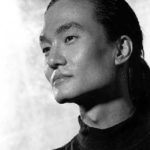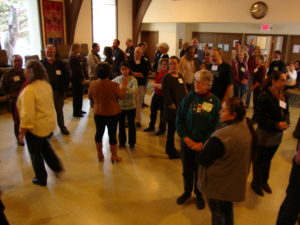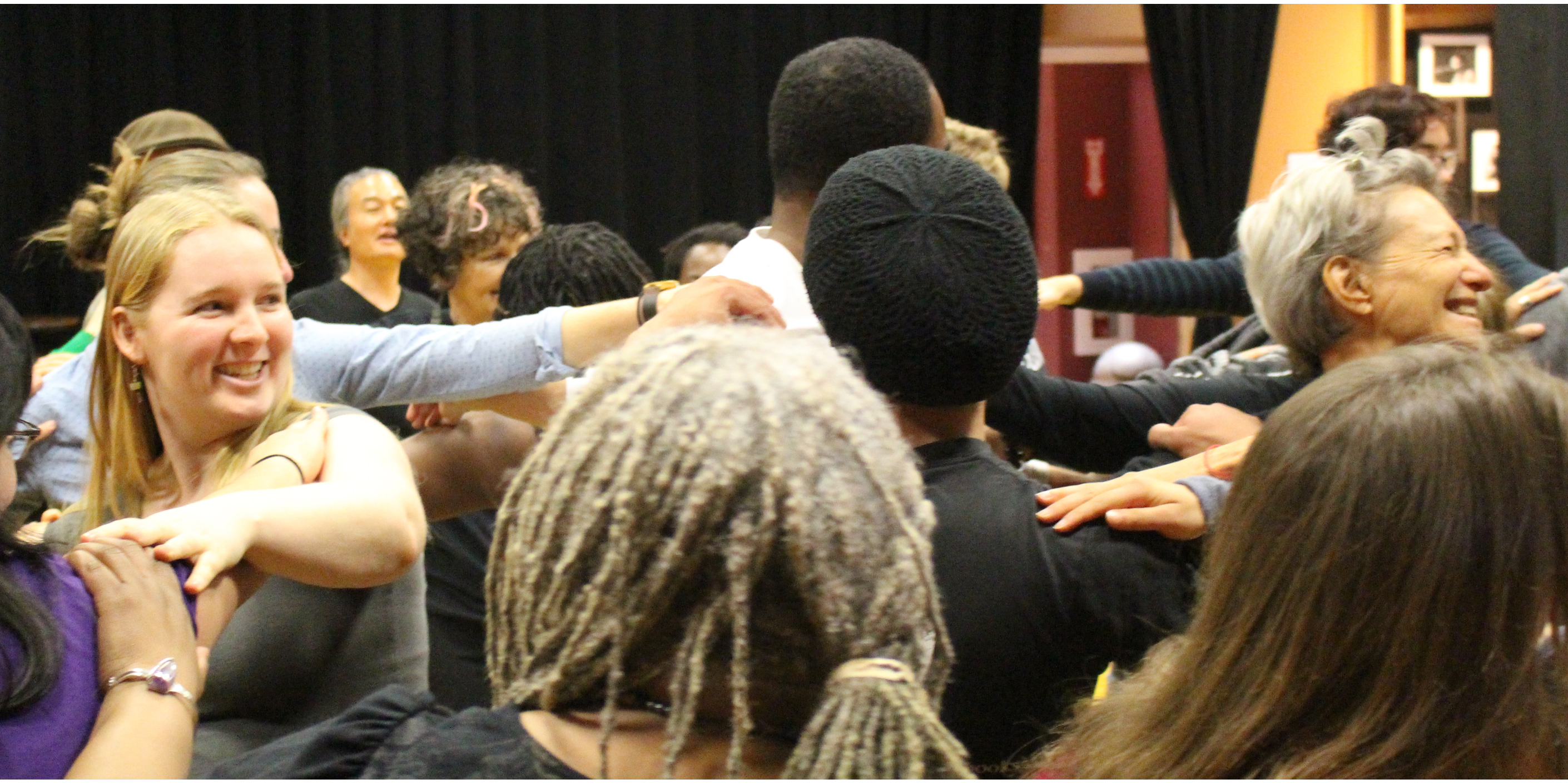Theatre of the Oppressed
About Theatre of the Oppressed
As a laboratory for exploring issues of authority and systemic oppression, Theatre of the Oppressed is both an arts and education program, where everyone plays the role of actor and observer, teacher and student. Fools Mission adds witness and accompaniment to the mix by giving people from different socioeconomic backgrounds, races, and cultures the opportunity to teach one another about their life experiences. Advocacy offers the support of the community to immigrant families as we train rapid responders to record and document ICE activity, report what they learn to legal teams, and seek to throw out detentions in suppression hearings.
 A diverse crowd of citizens and non-citizens fills the sanctuary at the UU Fellowship of Redwood City, California for a workshop on Theatre of the Oppressed. Fifty people are learning about this innovative approach to social change based on the pioneering work of Brazilians Augusto Boal and Paolo Freire.
A diverse crowd of citizens and non-citizens fills the sanctuary at the UU Fellowship of Redwood City, California for a workshop on Theatre of the Oppressed. Fifty people are learning about this innovative approach to social change based on the pioneering work of Brazilians Augusto Boal and Paolo Freire.
 Some opening exercises designed to get us moving, break the ice, and bring out our stories have shown us that we were born to be in the theatre. Each of us has an inner actor or actress who plays roles every day.
Some opening exercises designed to get us moving, break the ice, and bring out our stories have shown us that we were born to be in the theatre. Each of us has an inner actor or actress who plays roles every day.
The workshop turns to a method called Forum Theatre. A Latino high school student tells how an encounter with a Sheriff’s Deputy led to his being charged with obstructing an officer. He had offered translation assistance to the Latino driver of a pickup truck during a traffic stop. When the officer asked him to step away from the vehicle, the boy thought that he hadn’t done anything wrong and the two got into an argument. He naively thought that his innocence would keep him safe that night. Besides, his own father had lost his landscaping truck to impoundment in a similar police stop a couple of years ago, and he understood the plight of the driver. The boy’s family had struggled for months to recover what passes for stability in the immigrant community, as they tapped into their extended community of family and neighbors to subsist while they scraped together enough to replace the truck.
In Forum Theatre, the “Fourth Wall” between actors and audience doesn’t exist. Everyone participates. As the scene is acted and re-enacted, different people step into the roles of the young man, the driver of the pickup, and the Deputy. A white citizen with access to the privileges of society takes the young man’s role, confident in his ability to resolve the situation. This particular actor organizes the Dreamers Club at a local high school, and has a big heart for immigrant kids who dream about full participation in America. So when the Deputy orders him to step away from the vehicle, he steps away. Problem solved! Wanting to protect youth from their own bad judgment—and with the full confidence that white privilege is heir to—he proclaims to the gallery, “Why would I ever step back toward the truck after he ordered me not to?”
“Because you’re WHITE!” exclaims a Latina mother of seven, empowered by years of participation in Fools Mission and the liberating dynamics of Theatre of the Oppressed. “You have privileges!” cries out another. “You don’t know what’s at stake for us!” “You don’t know what we face every single day with the cops!” The wisdom of lived experience fills the room. The boy’s new sense of how to relate to police officers might actually save his life. A middle class white male not only accepts the reproof of the group graciously, but stays until the end and praises the skill of the workshop leader afterwards.
This is the power of Theatre of the Oppressed to raise consciousness, open hearts, and develop tools for encounters with authority. The powerful integration of justice making and art is a laboratory for tapping into the wisdom of the group. By taking turns sharing coping strategies with everyone in the room, we create a shared pool of understanding and meaning.
Fools Mission is sponsoring quarterly workshops that delve into issues of power and authority. We plumb the depths of the immigrant experience, exploring and practicing ways to protect vulnerable families from being torn apart by our dysfunctional and oppressive immigration system. Once you’ve had a direct, embodied experience of what others face, you’ll want to have more. Truth telling is liberating.

